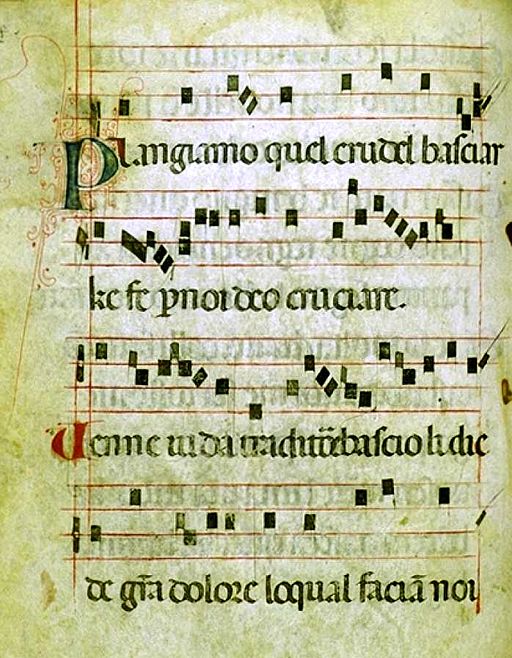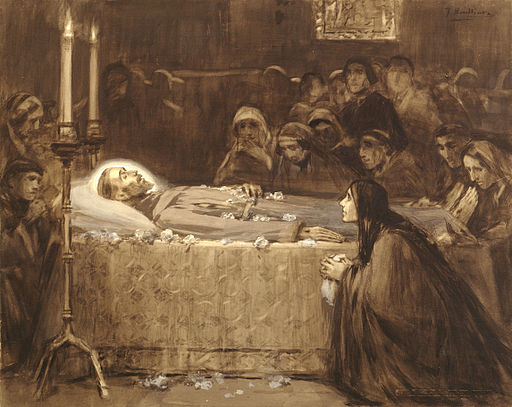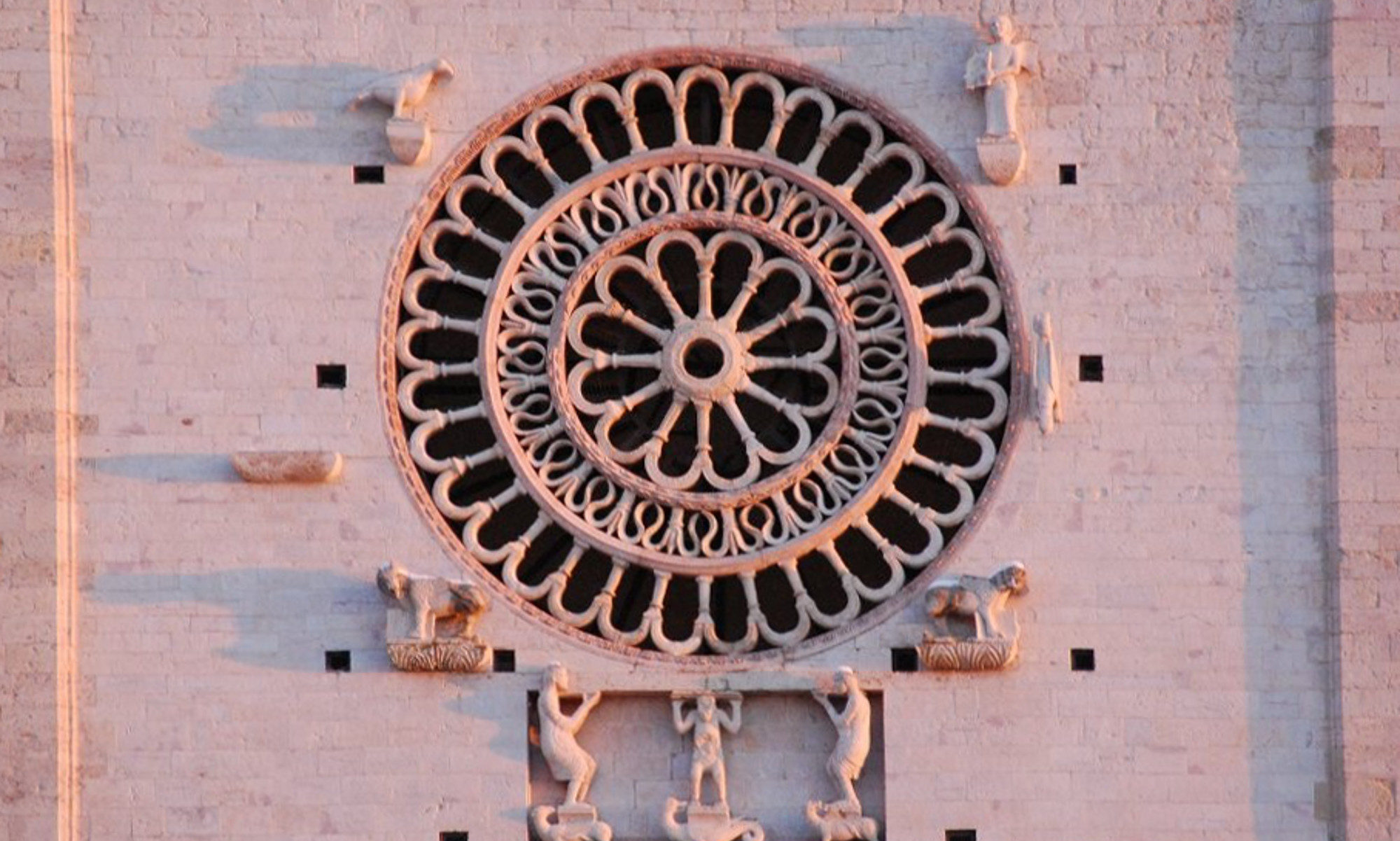
For music to accompany Lady of the Seven Suns, the lauda repertoire seemed to be the best fit. Laude are vernacular secular songs of praise from the late medieval and Renaissance periods, usually monophonic. It’s not unusual to find the same tune with both sacred (lauda) lyrics and secular ones, even something like a Florentine carnival song – some of which are actually pretty irreverent!
There were many confraternities (charitable and devotional lay organizations) in medieval Italy where laymen met and sang laude together, for the glory of God. Many of these laude are in praise of the Virgin Mary, and all are devotional in character. The one I’m sharing with you is Marian. It was found in a late 13th century book called the Laudario di Cortona, which was probably compiled and copied between 1260-1270 and which was rediscovered in a library in the Tuscan town of Cortona centuries later. The sheet of parchment pictured above is a page from that book.
We’ve paired our recording of the lovely tune Lauda Novella, which Esther sings with minimal accompaniment from Tim on harp and me on recorder, with a slideshow of drawings by the Spanish artist José Benlliure y Gil, who was born in Valencia in 1858 and died there in 1937. He studied for a time in Rome; perhaps it was there that he took an interest in the life of Saint Francis of Assisi. Many artists have left us their impressions of the lives and legends of the early Franciscans, but I am particularly attracted to Belliure’s because I think they really capture something of the mood of both the times and of the extraordinary men and women who were Francis’s loyal followers – including my main character Giacoma, shown here by Benlliure at Francis’s deathbed.

Lady of the Seven Suns contains a number of references to singing lauds (laude in Italian). Here are two examples:
[Francesco] would suddenly break into improvised song, making up a nonsense ditty and bowing an imaginary fiddle as he proclaimed himself “God’s troubadour,” and then segue into a prayerful and heartfelt lauda. When Francesco spoke or sang of God, he was a man enamoured. He urged us all to penitence, not for the fear of God but for the love of Him.
Here Giacoma is remembering time she spent with Chiara (who we now know as Saint Clare):
I loved singing lauds with the brothers, where my voice floated above theirs in a pleasing effect, but in this place, my voice was low to the point of sounding harsh in my own ears, as the sisters’ ethereal sopranos soared above my hesitant alto.
If you’d like to hear our performance of Lauda Novella, you’ll find it with this link, which has not been made independently searchable. YouTube has many other recordings of this and other laude from the Laudario di Cortona. You might want to search some out.

